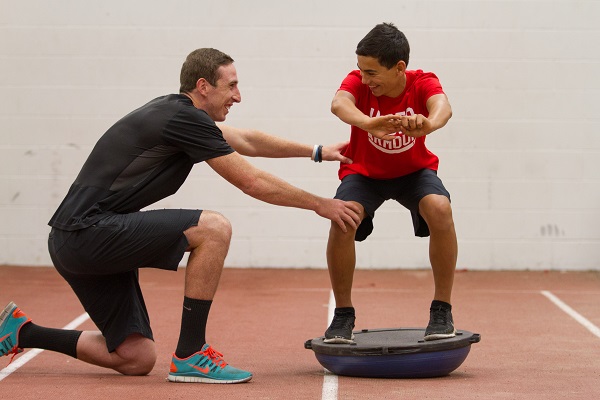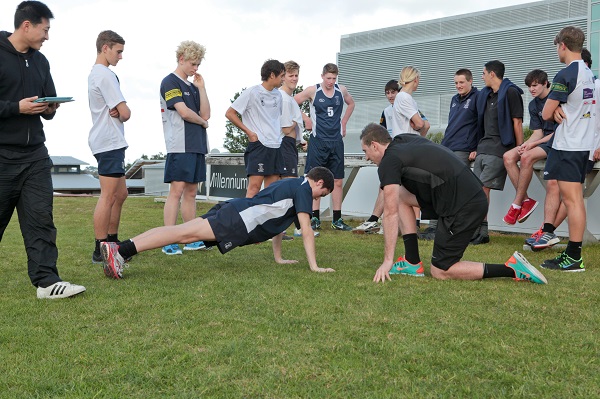Remember the backyard shooting games you played as a kid? ‘Around the World’, free throw shootouts, and one-on-one battles.
When the ball was bouncing, it was game on.
But what made it so good? Why did you keep turning up for more?
Backyard games provide the perfect environment to keep you interested.
Firstly, the opportunities to challenge yourself are infinite. You get to pick the one most appropriate one to test your abilities. When shooting from under the basket becomes a breeze, you back it up. Right?
Consequently, there’s constant skill progression. Which feels good.
Secondly, they provide the stage to test your new-found skills under pressure. Think shooting competitions and small sided games.
However, I believe there’s something more powerful. Arguably, the most important factor for kids when it comes to sport: Meaningful relationships with a caring elder.
For me, it was my older brother. Until our interests diverged during our teens, we shared a passion for sport, and in particular, backyard games. A big part our relationship was built on a love of playing with one another.
Time in the backyard with a parent or sibling is often when it starts for kids in sport. As a child matures and sport becomes more structured, relationships with their coaches develop. Like it or not, this has a significant impact on their development.
 So, here are 7 things great youth coaches get right.
So, here are 7 things great youth coaches get right.
-
They care about the person more than the athlete.
Youth athletes are people first. Great coaches understand that it’s more important to develop personal skills and characteristics, which are transferable to other domains of life, than those specific to the sport they’re coaching. Things like empathy, communication, and problem solving.
-
They Understand That Anything Worthwhile Takes a Long Time
Learning takes time. And significant effort.
Great coaches have a real sense for what it takes to develop skills to the point that they become ingrained, so that they can be performed without thinking when the pressure is on during competition.
-
They understand that people are at the heart of motivation
You’re more likely to get out of bed on a cold winter’s morning when you know someone is counting on you to be there and when you feel part of an important group of like-minded people.
Great coaches create a learning environment that values every single athlete for showing up.
Read how the All Blacks do it here.
-
They build rapport before giving feedback
It’s hard to hear about the things you suck at. Your weaknesses.
We all need feedback to improve and it’s much easier to swallow when you know it’s coming from someone with your best intentions at heart.
Great coaches know the developing a trusting relationship precedes your ability to give effective feedback.
-
They talk to their athletes about life
Kids live in a world full of challenges and struggles and in many instances are yet to develop the skills to get through them alone.
There’s something about a caring relationship developed through sport that makes problems easier to discuss and where advice can be sought without fear of embarrassment.
Great youth coaches check in with their athletes about their lives outside of sport, like what’s up at home, school, and in other peer groups.

-
They’re exciting to be around.
You’re more likely to stick with something that’s exciting. I think it’s a key indicator of adherence.
Training can be hard, and often boring. “Get comfortable with the boring” is a great piece of advice I received about learning. Getting adequate repetition to acquire a new skill properly takes time.
Great coaches bring excitement to the training environment. They know when their athletes are down and exactly how to get them up.
-
They stay interested in their athletes after the whistle blows time
A relationship founded in sport can last for life. Great youth coaches make themselves available to their athletes well after their coaching commitments end.
Did you have a coach in younger days that made a lasting impact? Why not reach out to them and say thanks? It will be well worth your time.
Be the best you can be,
p.s. I’d love to hear about your favourite coach in the comments below, or you can email me directly.




































